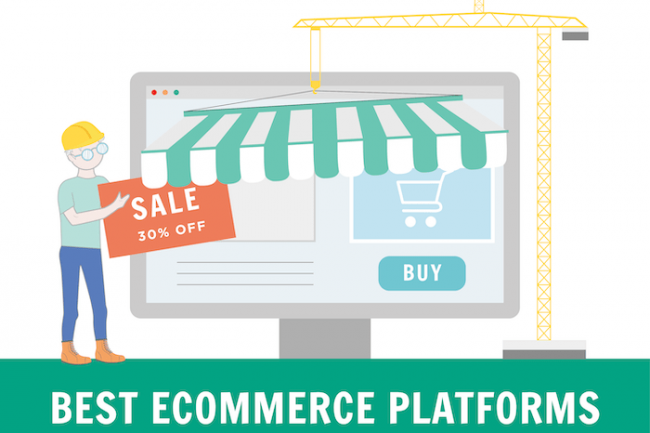Numerous individuals around the globe like to shop on the web and purchase items from a few brands and organizations that they can’t discover or are not accessible for buy in their nations of origin and so the need of shop owners presently is to find the list of best ecommerce platforms. These days, and with the assistance of the new innovation and the help of the web, individuals from all around the globe began to buy things online by basically sitting in their homes. Online shopping can save time for both the buyer and retailer, reducing phone calls about availability, specifications, hours of operation or other information easily found on company and product pages. Webiators can reduce your burden of working on this list of best ecommerce platforms on your own and make your store available to your customers online in a few steps.
 List Of Best Ecommerce Platforms
List Of Best Ecommerce Platforms
Shopify (www.shopify.com/)
Shopify is a business stage that permits anybody to set up an online store and sell their items. Dealers can likewise sell their items face to face with Shopify POS. Regardless of whether you’re a sprouting gems originator and need to begin selling your items, or an artist and need to sell your most recent mixtape, or in the event that you have a built up business and need to develop, Shopify can support you. A huge number of business people from more than 175 nations trust Shopify to help sell their items.
Below you’ll find the different products or services that you can sell on Shopify. Even if you know what you’re selling already, it may give you some ideas for other services you could sell to grow your business.
Physical products
Digital products
Services and consultations
Membership
Ticketed experience
Classes and lessons
Rentals
WooCommerce (https://woocommerce.com/)
WooCommerce is an adaptable, open-source trade arrangement based on WordPress. The organization began in 2008 as WooThemes and in 2017 chose to concentrate solely on eCommerce.
Today, WooCommerce engages little and medium organizations to fabricate precisely the store they need and sell on the web. Our inheritance as an all-remote organization perseveres through, developing from three authors in Norway, the United Kingdom, and South Africa to in excess of 150 colleagues in 32 nations.
BigCommerce (www.bigcommerce.com)
Bigcommerce is a paid-for, ‘hosted’ ecommerce solution that allows business owners to set up an online store and sell their products online.
It’s a software as a service (SaaS) product, which means that you don’t own the software, but pay a monthly fee to use it.
The product comes with a range of customizable templates to help you design your online store; you can use it to sell either physical or digital goods; and there are also some tools provided to help you market your store.
Magento (https://magento.com/)
Magento is an ecommerce platform built on open source technology that provides online merchants with a flexible shopping cart system, as well as control over the look, content, and functionality of their online store. Magento offers powerful marketing, search engine optimization, and catalog-management tools.
BENEFITS OF USING MAGENTO
- Easy to install and add additional layouts and plug-ins
- Open source technology that offers flexible, scalable ecommerce solutions
- Effective and cost sensitive program
- Allows for various discounts and promotions during check-out
- Provides more than 50 payment gateways
Wix eCommerce (www.wix.com/ecommerce/)
Wix is known for its simple website builder, with a drag and drop interface and a development wonderland for complete beginners. Wix ecommerce has also seen some success, with competitive pricing and decent-looking themes.
Basically, the Wix Ecommerce system allows for selling anything from clothing to specialty cakes. There’s even support for digital goods like audio files and eBooks.Wix has an easy-to-use dashboard, and the drag and drop interface works well for beginners. It has an app market for including add-ons and other cool things like contact forms and receipts.
Wrapping Up
To capture a piece of the pie, brick-and-mortar stores need to adapt as their customers are. Shoppers are more than happy to stay home and research and complete their purchase online as long as the barriers to online shopping have been subverted, i.e. security risks, paying for shipping, etc.
An ecommerce system provides real time data and analytics about your products and your customers. You can see how people interact with the site, what products interest them, what they left in their cart and how much the average purchase was. Valuable metrics that allow you to make adjustments to meet your customer’s needs. So if you are ready to take your store online Webiators are here to make your online experience worth living and to gra most of its benefits.
